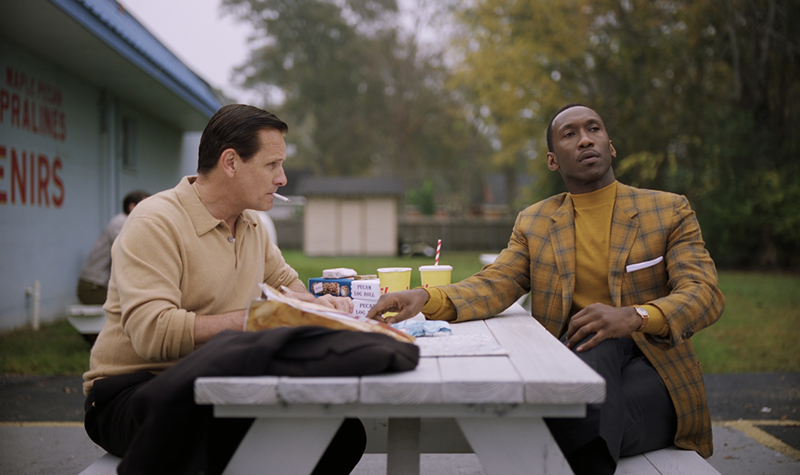Green Book is a drama spiked with comedic moments that follows Dr. Don Shirley (Mahershala Ali), a black classical pianist who hires Tony Lip (Viggo Mortensen), an Italian-American bouncer, to drive him during a concert tour in the early 1960s South.
It’s a departure of sorts for director Peter Farrelly, whose previous work includes films like Dumb and Dumber and There’s Something About Mary with his brother Bobby.
Based on the real interactions and relationship between Shirley and Lip, the film attempts to bridge the historic and cultural divide separating them (and the country) by focusing on their burgeoning awareness of a shared humanity. But this realization occurs more for Lip, a white (and acknowledged racist) character, more so than the black protagonist — which puts the former’s perspective in the foreground.
This is a somewhat incongruous decision since the film draws its title from The Negro Motorist Green Book, a Jim Crow-era guidebook for African-American travelers. The annual tomes, first published in 1936 by Victor Hugo Green (a Harlem postman), catalogued hotels, guest houses, filling stations, drug stores, barbershops, bars and restaurants known to be safe establishments for black folks braving the roads during these perilous times. While it was assumed the guidebooks focused on Southern states, they documented hospitable venues as far north as Connecticut and as far west as California.
In the film, soon after Lip agrees to chauffeur Shirley, he is presented with what is likely the latest edition of The Negro Motorist Green Book. Over the course of the film, Lip casually skims the pages a few times, but there is no instance where the guide gets employed in a direct and significant way.
As both a critic and an African-American, I wondered what Lip (and the filmmakers) knew about the books and their vital role in protecting black travelers. I wanted this white man to learn something profound about his nation and privilege, a term used more today than in that time. But the point remains valid. This story is about privilege, learning about racism and its insidious nature. There’s an obvious teachable moment in Green Book to illustrate the crucial lack of understanding of the racial realities at that time.
Instead, the movie traffics in feel-good buddy-road-trip tropes and relies on Hollywood cruise-control settings that favor the typical white savior narrative told from the white character’s perspective. On the drive, we get an insulting exchange between Lip and Shirley that calls out Shirley’s blackness. Lip derides him for never having eaten fried chicken and his lack of exposure to popular black music; this sets up a moment where Lip claims he’s “more black” than Shirley because he’s hip to these things.
There’s an uncomfortable irony in watching a white man with “soft” racist tendencies acknowledge that he’s “more black” than a man who can’t even travel across the country without a “Green Book.” Farrelly and the film get a pass from general audiences because we’re in the good company of performers like Mortensen and Ali, who are generous, engaging actors that infuse these situations with far more dignity than they deserve.
We’ve seen Mortensen as a cold-blooded killer in Eastern Promises, a sympathetic man in History of Violence and a Tolkien epic hero in Lord of the Rings, so audiences are more than ready to embrace Lip’s racism as a pesky character flaw that he will leave behind thanks to his exposure to Academy Award-winner Ali’s righteous grace — which lends a magical brand of racial healing similar to that of actor Sidney Poitier.
It seems this old-timey salve remains effective with audiences and among the critical set, despite talk of an assumed progressive cultural shift. Green Book announced itself as an awards season contender right away by claiming the Audience Prize at the Toronto International Film Festival and recently earning Best Picture honors from the National Board of Review. These first steps pave the way toward the Academy Awards in February.
Ultimately, an updated version of the Green Book is needed to navigate through an industry and social climate that still struggles to create equal opportunities and privileges for diverse perspectives.
Grade: D (In theaters)


